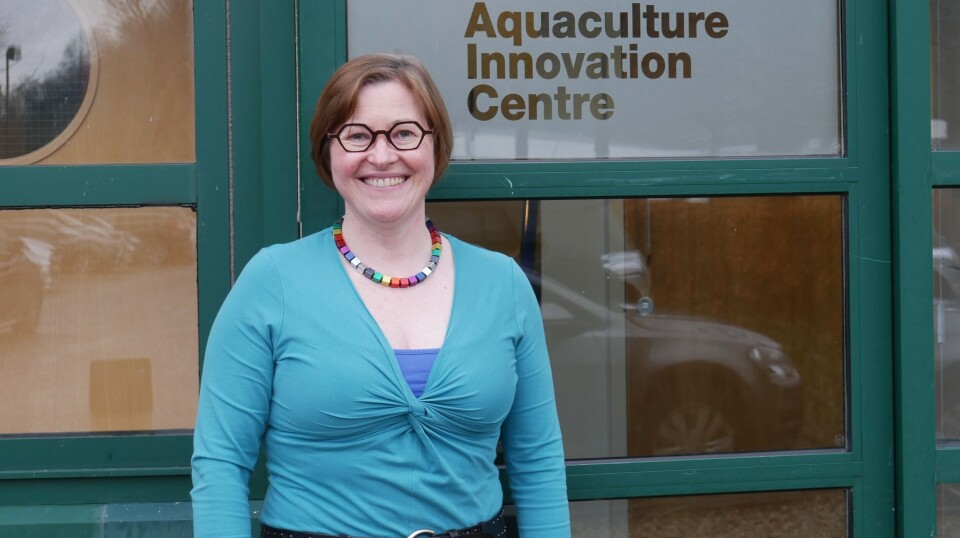
Looking back, thinking ahead: Heather Jones
Fish Farming Expert has asked individuals connected to the salmon farming industry about their year, and what they hope for in 2024. We continue the series with Heather Jones, chief executive of the Stirling-based Sustainable Aquaculture Innovation Centre (SAIC), which is seeking alternative funding for the next five years after being refused a new grant from the Scottish Funding Council.
What have been the highlights for you professionally in 2023?
SAIC achieved a significant milestone in 2023, reaching our 100th project. A huge amount has been delivered over the course of these projects, with £5.67 of sector and third-party funding generated for every £1 of SAIC investment. In our tenth year, we celebrate the £37.4m of industry contribution to the £71.8m of SAIC-led applied research programmes. This level of co-investment demonstrates SAIC’s alignment with both the sector and government in providing practical tools under the Farmed Fish Health Framework to improve efficiency and reduce aquaculture’s environmental impact.
Another highlight has been the impactful events we have been part of in the last 12 months. Our Sustainable Aquaculture Summit in May brought together leaders from across the sector at the Technology and Innovation Centre in Glasgow to discuss fish health; innovation with impact; and sustainable food, strong communities.
The success at Aqua Nor in Trondheim was a great example of what can be achieved when Scotland’s aquaculture industry and public sector work together. The buzz around our ‘Team Scotland’ pavilion was incredible. Many of the exhibitors came away having made valuable connections, signed contracts, and agreed to collaborate in the future.
From a skills perspective, winning substantial funding of £250,000 from the Department for Environment, Food & Rural Affairs (Defra) to deliver much-needed training on harmful algal blooms (HABs) to the sector was another high point. The modules are now well advanced and will be of great practical use to the sector. This adds to our wider package of impactful skills programmes, including leadership, mentoring, and industry-based internships.
Our funding situation is obviously the most significant challenge we face next year – however, we are having very positive conversations with potential new partners
Heather Jones
What will be the most significant challenges and opportunities for your organisation in the coming year?
Next year will be about driving more world-leading research in Scottish aquaculture, focused on crucial areas for the sector. Our recent R&D Boost funding call received a great deal of interest, with seven projects related to fish health and wellbeing set to get under way first thing in 2024.
Our funding situation is obviously the most significant challenge we face next year – particularly in a difficult financial landscape. However, we are having very positive conversations with potential new partners and look forward to being able to announce the outcomes of that when they are more solidified.
Finally, the Women in Scottish Aquaculture (WiSA) network survey results will be available in Q1 of 2024, telling us what services people value most from all that has been delivered in the five years since WiSA launched. This provides an opportunity for the sector and government to decide if they wish to see WiSA continue into the future – the direct industry sponsorship and single dedicated government grant provided five years ago have been used up, bringing the current programme to an end.
What do you see as the most significant challenges for the salmonid farming industry in Scotland and globally in 2024?
Climate change presents a number of challenges to all food producers, with the sector facing both new biological challenges and recurring issues due to shifting environmental conditions. Enhancing and safeguarding the health and welfare of livestock is going to be a top priority – it is an area much of our work will target over the next 12 months.
Communicating those issues is going to be another challenge. Misinformation and ‘alternative truths’ are, unfortunately, all too frequently spread about aquaculture, and the sector will need to do more to share unbiased and science-based facts with the public and regulators – supporting the latter with efficient decision-making and the development of effective new regulation. We intend for SAIC’s independent, evidence-led voice to continue contributing to these debates.
Misinformation and ‘alternative truths’ are all too frequently spread about aquaculture, and the sector will need to do more to share unbiased and science-based facts with the public and regulators
Heather Jones






















































